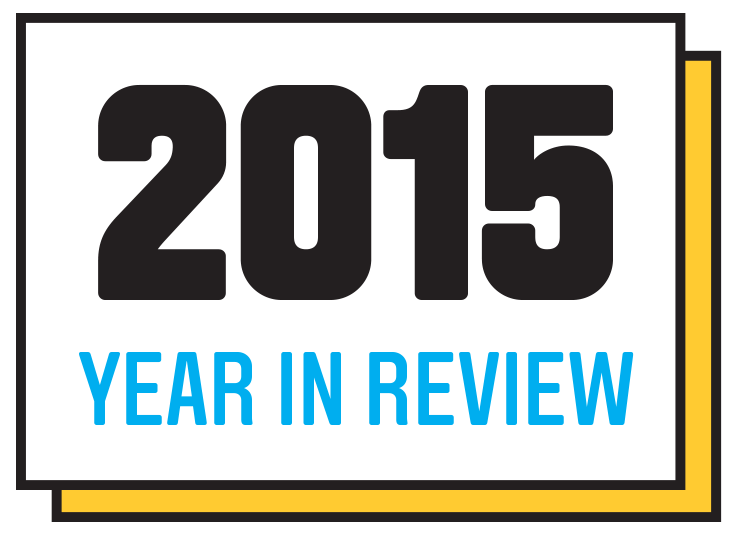
When John Boehner walked onto the House floor in early January to address the first legislative session of the 114th Congress, women occupied 84 of the seats around his dais. It was more than the chamber had ever seen, and still, women accounted for only a slim fraction of the politicians on Capitol Hill. Today, nearly a century after Jeannette Rankin, a Republican from Montana, became the first woman elected to the House in 1916, women comprise just 20 percent of Congress.
Political scientists know that when women run for office, they win. “The growing presence of female leaders in politics is likely to inspire, encourage, and energize potential female political leaders,” writes Dartmouth professor Deborah Jane Brooks in He Runs, She Runs, her recent book on gender stereotypes in politics. “That, in its own right, is cause for optimism.”
But female politicians still face sexism on and off the campaign trail, from Capitol Hill to state legislatures to daily press clippings. This year—as pundits wondered whether America was ready, at long last, to elect its first woman president—female politicians encountered journalists who mentioned their pink nail polish and commentators who likened them to stewardesses. Here are the best examples of female politicians dealing with utter crap in their jobs in 2015—and overcoming it.
January 20
Joni
Ernst gives the Republican rebuttal to Obama’s January State
of the Union address. In her address, she speaks at length about how she used
to wear bread bags over her shoes to keep out the rain as a child in Iowa. While
her speech did sound a little stilted, the media later compared Ernst, an Iraq
veteran, to a stewardess and a cheerleader.
Joni Ernst delivering response in the style of an in-flight safety video.
— Ronan Farrow (@RonanFarrow) January 21, 2015Joni Ernst's #SOTU response speech would have worked well for a 9th grade cheerleading competition. #fail
— Keith Boykin (@keithboykin) January 21, 2015February 2
The New York Times reports that the Republican takeover in the Senate knocked the number of women leading committees from nine the previous year—when women held a record number of chairmanships, even heading up traditionally male committees like Appropriations and Intelligence—to two. Of those two, Lisa Murkowski, the Republican senator from Alaska who now heads the Energy Committee, recounted how aides to Kevin McCarthy offered her a windbreaker with “Chairman’s Table” written on the back. The only problem was that it was designed for a man—and far too large to fit her thin frame. “His staff was, of course, very apologetic,” Murkowski told the Times. “But I did think that was somewhat telling. We are not thinking about the women.”
April 17
Paul Bedard, a columnist at the conservative Washington Examiner, tells Carly Fiorina that he had “never met a presidential candidate with pink nail polish on.” They were both attending a breakfast hosted by the Christian Science Monitor. Fiorina coolly replies, “there’s always a first.”
July 20
In a speech from his home state, Mitch McConnell argues “the gender card alone is not enough” to get Hillary Clinton elected. The longtime Republican politician was referencing his reelection campaign the previous year, when his opponent, Alison Lundergan Grimes, claimed he was tactless about gender issues like pay equity. McConnell beat Grimes handily in the election. But his comments, directed at Clinton, seemed to imply that the former senator and secretary of state lacked any qualifications to be president, other than her gender, and even that was insufficient.
September 9
Rolling Stone reports that Donal Trump, surrounded by staffers, glanced up at a broadcast featuring Carly Fiorina and asked whether anyone would vote for “that face.”
His “expression sours in schoolboy disgust as the camera bores in on Fiorina. “Look at that face!” he cries. “Would anyone vote for that? Can you imagine that, the face of our next president?!” The laughter grows halting and faint behind him. “I mean, she’s a woman, and I’m not s’posedta say bad things, but really, folks, come on. Are we serious?”
The following week, Fiorina fired back at Trump, a former playboy who has divorced two women and is currently married to model Melania Trump, with an impromptu zinger at the second Republican debate: “I think women all over this country heard very clearly what Mr. Trump said.” That line, the Washington Post reported the next day, won her the debate.
September 23
Donal Trump repeatedly calls Hillary Clinton “shrill” during a campaign gathering in South Carolina. In a convention center in Charleston, Trump raised his voice several octaves, telling the several hundred people who had gathered to hear him speak: “Hillary, who is very shrill—do you know the word ‘shrill’? She can be kind of sha-riiiiill.”
October 25
At the Democratic debate, Bernie Sanders says that “all the shouting in the world” would not keep guns out of the wrong hands. Later, in a blockbuster performance at Iowa’s Jefferson Jackson Day dinner, Clinton suggests that Sanders used those words because of her gender. “I haven’t been shouting,” she said. “But sometimes when a woman speaks out, some people think it’s shouting.”
October 30
Ralph Nader pens an open letter to Federal Reserve chair Janet Yellen. In it, he argued that her policies had hurt “savers” across America and asked Yellen to “sit down with your Nobel Prize winning husband, economist George Akerlof,” who might be able to explain the topic more fully.
